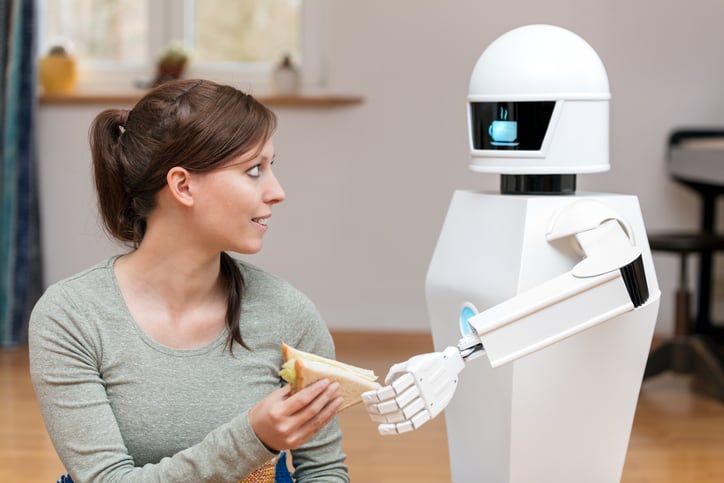Today, it takes thought and conscious effort to live a healthy life but when consumers build enough trust in AI to effortlessly integrate health into their lives, there will be nowhere for imperfect nutrition to hide.
This is according to EY’s FutureConsumer.Now program which outlines eight hypotheses on how consumer-facing industries will change beyond recognition over the next 10 years and transform the way companies create value.
Speaking about 'The Smart Consumer' hypothesis, Kristina Rogers, global consumer industries leader for consumer products at EY, explains that people are already analysing their personal data to improve their lives and become better versions of themselves. She says that as the technology evolves 'The Smart Consumer' will fine-tune everything they do.
“In the future, once we establish a trusted relationship with providers to share our data, we’ll be able to connect to a sophisticated infrastructure of technologies that actively and automatically monitor, improve and maintain our health and well-being.
“We won’t need to think about it, and we’ll barely be aware of it," Rogers told NutraIngredients. "There’d be no planning and no hard work required. Our exercise needs, social activities, meal plans and preventative therapies would be integrated and personalised into every area of our lives."
Of course, in EY's vision of the future, our diet would change dramatically and Rogers argues that 'paradox products' - that look like a normal food but contain hidden health benefits - would be common.
Rogers adds: "A 'steak' could be plant protein shaped on a 3D-printer, containing vitamins and nano-medicines designed specifically for our bodies.
“Future consumers will be able to eat and drink things that are great for their health, are quick and convenient, taste fantastic, and reflect our ethical values. It is up to health food and drink and supplement firms to recognise, understand and exceed consumers’ expectations.
"Blockchain technology will make food systems completely transparent. Consumers will know everything about where our food comes from, how it make its way to our plate, and what it's doing to our bodies. Radical transparency will be standard for all food and drink companies."
In this world of maximum health with minimal effort, Rogers questions whether consumer-facing health food and drink firms will be considered part of the problem or part of the solution.
Trust reigns supreme
EY analysts believe they may have found the answer to remaining relevant in a transparent future. Their recent global research found that protecting consumer data is critical to building trust and meeting consumer needs in the future.
When researchers asked members of EY's network about how corporates can build trust, two-thirds (66%) said that ‘being transparent about the financial information they report externally’ will be critical.
Nearly all respondents – 97% – said this was important if a company wants to successfully meet the future needs, values and behaviors of consumers. This is an issue that matters to all generations.
The research also found that “building consumer confidence that online channels are secure” emerged as the number one priority for building a successful digital customer experience.
Rogers says, in order to build trust in how they manage data, organisations need a clear code of ethical conduct around data.
"They also need to see regulatory obligations not as a compliance exercise, but a means to take a positive attitude. Companies that are trusted in how they manage data will generate significant value, and organisations should proactively incorporate data and trust into their corporate reporting.
"Businesses should not become complacent because they enjoy a relative trust advantage. As fast-advancing automation and artificial intelligence threaten jobs, people’s trust in companies could be threatened as their fears about their employment prospects mount.
"To manage this risk, companies need to actively engage externally, keeping all your critical stakeholders up-to-date on your stance on key issues, from data ethics to purpose. This will be critical to cementing trust and protecting long-term value."
Utopia or nightmare?
At EY's recent 'hackathon' event in Berlin, futurists, EY professionals and industry leaders discussed a different, potentially scary, idea of the future. They hypothesised that people will gather and share all their data for the greater good of society in order to cut healthcare costs and waste and boost well-being.
Rogers explains: "Consumers would sacrifice a lot of personal choice and freedom so the community can function in an optimal way. And those who chose not to share their data would be seen as anti-social.
"But the personal and civic benefits of open data sharing would be incredibly powerful. Does that sound like a utopia, or a nightmare?"

